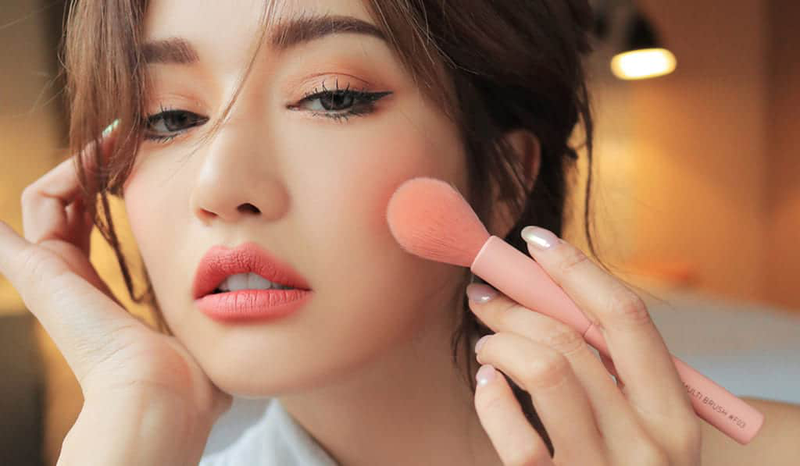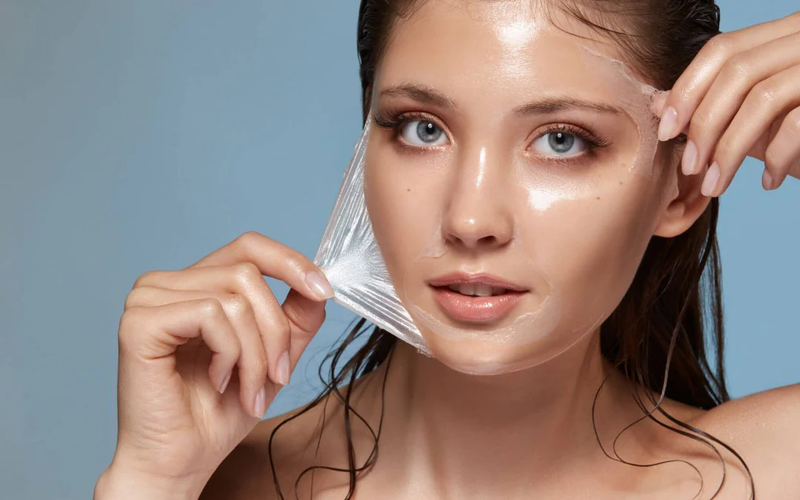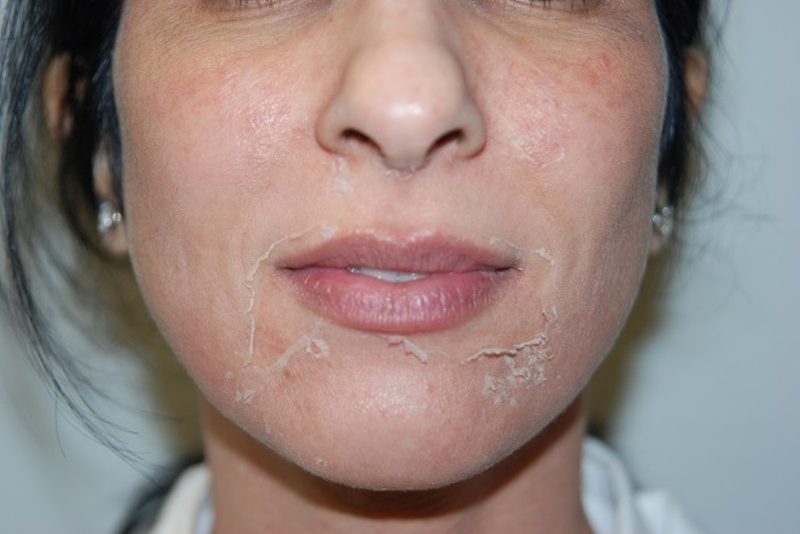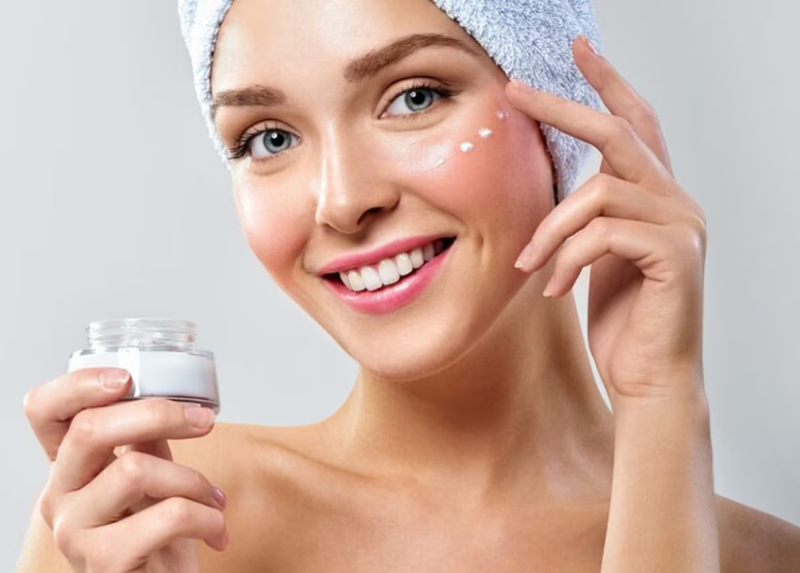Peeling is an effective beauty method in treating acne and improving the skin to become white and smooth. However, during this process, the skin will become more sensitive and vulnerable to external factors. Therefore, many people often wonder if they can wear makeup while peeling? The article below will help you answer this question in detail. Let’s explore!
Can I wear makeup while peeling? This is certainly one of the major concerns of many people who are facing this problem. When the skin becomes more sensitive, the use of cosmetics can affect the effectiveness of the peeling process. So, how will makeup during this stage affect the final result? Let’s find out the useful information in the article below to find the most effective way to care for and protect your skin!
Can I wear makeup while peeling?
Many people wonder if they can wear makeup while peeling? The answer is no. During the peeling process, the skin will become very sensitive, so makeup is not recommended. The chemicals and oils in makeup creams can easily irritate the skin, increasing the risk of inflammation and discomfort. Moreover, when applying makeup, you can accidentally create conditions for bacteria from cosmetics, powder puffs or sponges to penetrate the skin, leading to acne and further damage to the skin.
Therefore, the best advice is to consult a doctor before deciding to apply makeup or use any product on the skin, to ensure the safety and effectiveness of your skin care process.

Can I wear makeup while peeling?
So, how long after peeling can you apply makeup? Normally, after about 3-5 days of peeling, you can start using skin care products such as serums or gentle moisturizers. However, for cosmetics containing strong active ingredients such as retinoids, AHAs or BHAs, you should wait at least one more week. This will help reduce the risk of skin irritation, ensuring a smooth recovery process.
Skin condition during peeling
Skin peeling is a beauty method that uses chemical active ingredients to create controlled damage, helping to break down the bonds in the epidermis and remove dead cells. At the same time, this method stimulates the skin’s natural regeneration process through the production of collagen and new cells. Thanks to that, the skin not only reduces acne and fades dark scars but also becomes brighter and smoother. Knowing whether you can wear makeup while peeling your skin does not guarantee that your skin will have positive results after peeling. Understanding the condition of your skin while peeling will help you easily care for and handle unexpected situations.

Peeling will not only help reduce acne and dark scars but also make your skin brighter and smoother.
During the peeling process, your skin will undergo some specific changes as follows:
- A few hours after the peel, the skin may appear slightly red, slightly stinging and more sensitive to temperature.
- After about 3-7 days, the skin begins to peel, accompanied by a feeling of mild itching, redness or increased sensitivity.
- In some cases, the skin may develop small whiteheads due to the pushing of sebum and dead cells to the surface.
In general, during the peeling process, the skin is very sensitive and fragile. Therefore, you need to establish a suitable skin care routine to help the skin recover quickly and effectively.
 Skin begins to peel, accompanied by a slight itching sensation after 3-7 days of peeling.
Skin begins to peel, accompanied by a slight itching sensation after 3-7 days of peeling.
Tips for quick skin recovery during peeling
To effectively protect and care for your skin during peeling, you should follow these steps:
- Protect your skin from the sun: UV rays from sunlight can increase skin pigmentation and make your skin prone to acne. In the first 1-3 days after peeling, use sunscreen pills as directed by your doctor and cover your skin carefully to minimize sun exposure. After this period, you should use sunscreen with an SPF of 30 or higher to best protect your skin.
- Do not pick or remove the peeling skin: When the skin begins to peel, let it fall off naturally without picking or removing it with your hands. This can damage the skin barrier, leading to redness, irritation, and post-inflammatory hyperpigmentation.
- Use a gentle cleanser: The skin after peeling is very sensitive, so you should only use gentle, grain-free and soap-free cleansers to limit damage to the skin.
- Moisturize the skin: The skin after peeling can become dry and itchy. To improve this condition, use a moisturizer or mineral spray to keep the skin hydrated. However, you should choose a product that is suitable for your skin type and has gentle ingredients.
With these care steps, you will help your skin recover quickly and achieve the best results from the peeling process.

Regularly moisturizing your skin will help prevent dryness and itching after peeling.
Through the above article, hopefully you have clearly understood the information about whether you can wear makeup while peeling and other related useful information. You can refer to it to take care of your skin properly to achieve the desired effect after peeling. In addition to skin care, an important factor that cannot be ignored is choosing a skin peeling address. You should look for a reputable dermatology clinic, with a professional doctor to examine and advise on an effective treatment regimen to ensure the safety of your skin. And if you encounter an abnormal condition, you should visit a doctor for timely diagnosis and treatment.





